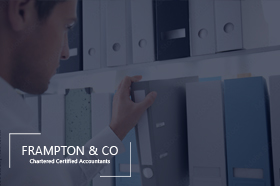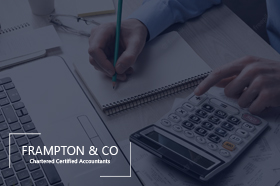Frampton & Co Chartered Accountants | Accountancy Services
Accountancy services involve the measurement, processing, and communication of financial and non-financial information about economic entities such as individuals, businesses, and corporations. Frampton & Co are experts in all fields of accounting, auditing, bookkeeping, tax preparation, financial reporting, and business advice. Our services are provided by professionals who have the appropriate qualifications, skills, and experience in the field of accounting.
Engaging with Frampton & Co can benefit both individuals and businesses in various ways. For individuals, accountancy services can help you manage your personal finances, plan for your future goals, comply with UK tax laws, and make informed decisions. For example, our team can help you as an individual to prepare your tax returns, advise you on tax savings strategies, or assist you with estate planning. For businesses, we can help you monitor performance, improve efficiency, comply with regulations and achieve milestone objectives. For example, we can can help your business prepare financial statements, audit accounts, review internal controls, and provide you with invaluable business advice. Additionally we can also help businesses access finance, attract investors, expand into new markets, or merge with other entities.





